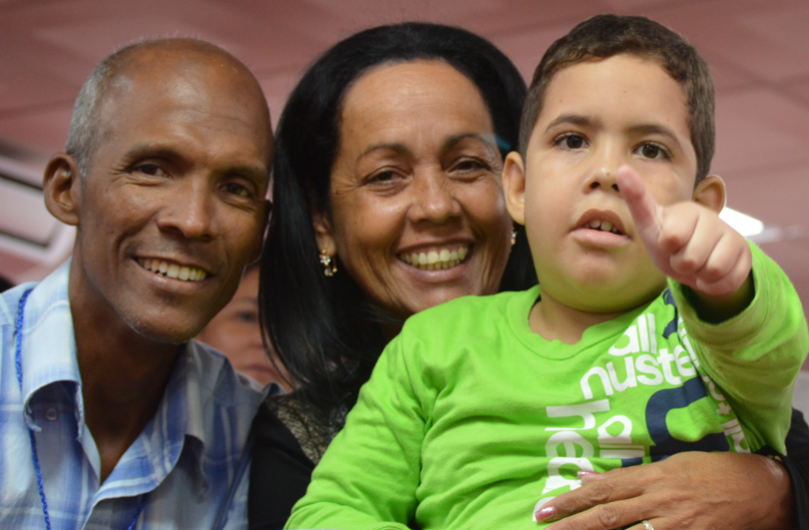Meeting with Professionals
People with Prader-Willi syndrome (PWS) often present as cooperative, knowledgeable and highly capable of making their own decisions. They appreciate responsibility and respect. Adults with PWS, who are intellectually able, usually resent the fact that parents or other family members want to accompany them to appointments with professionals involved in their health care or life matters.
This can create much frustration for parents and families as well as the professionals. It can also lead to misleading information being received and incorrect action being taken on the part of the professional.
How can family members avoid difficult situations based in misrepresentation and misinterpretation while maintaining respect for and avoidance of belittling of the person with PWS?
We know people with PWS can be very suspicious and guarded when it comes to disclosure of their “negative” traits, but people interviewing them, whether it be for health or a social issue need to be aware of the characteristics of PWS.
People with PWS also have the right to health and social care provided by an informed professional. Given that people with PWS make up a very small percentage of the population, PWS-informed professionals are not common.
This information covers important facts about PWS and tips to enhance the communication between the person with PWS and the professional with whom they are meeting. It highlights why knowledge of PWS is important and what can happen if it is not understood. Parents and/or caregivers of people with PWS have a “responsibility of care” to provide this information. For best practice of health management they need to be heard, as this information will not be given to the professional by the person with PWS. If possible, maintain regular follow-up with the same professional, so a relationship can be developed between them and your person with PWS and yourself.
Knowledge of PWS is important for good communication
- PWS is a complex syndrome.
- It affects several systems in the body.
- Good verbal ability may hide the impairment of accurate recall, poor reasoning, impaired problem solving and a poor concept of time, number or quantity and severity.
- A very high pain tolerance and lack of temperature response can mask injury and illness. A childlike fear of pain or the knowledge of “gain” from reported pain can confuse the existence of real pain. Some people with PWS are also not good at accurately pinpointing the actual site of pain. Pointing to the elbow could just mean they have a painful arm – anywhere from the shoulder to the wrist.
- People with PWS are concrete thinkers and have poor sequential processing skills. So replies to questions may appear delayed or be interpreted as a lack of understanding or ignorance of the topic at hand. People with PWS need time to comprehend a question and then cognitively organise an appropriate response. Their cognitive organisation (executive ability) is slow.
They do better with simple, direct questions, not multi-stepped questions or more than one at the one time. Avoid comments that could have ambiguous meanings or those that require specific interpretation. It is better to “suggest” what is needed and to offer choice, where possible, rather than demand what must be done.
Clarification from the professional of specifics of treatment or management is essential. People with PWS are generally not good at “reading between the lines”. Flippant comments or generalisations are often heard as fact!
For example: John, with PWS, has fallen in the street and grazed his left knee. He is demonstrating much pain! His knee is x-rayed and no broken bones are found. His cut is dressed with a small bandage. The doctor tells him to take paracetamol for the pain. You ask: how many should he take, how often and for how long? The doctor may answer: as many as he needs for as long as he has pain. You could then ask: can you please confirm how many he should take at one time and how many times per day he should take them? When should he stop taking the tablets?
- Memory recall is not always accurate! It may be embellished due to the practice of confabulation or story-telling, which is often seen in people with PWS. Memory may also be distorted due to misinterpretation by the person with PWS. A poor perception of time may influence their history of reported symptoms, duration of signs and time-lapse since a significant event.
They may also withhold information for fear of being “in trouble” and may falsely implicate another person to avoid personal blame.
- The self-orientation seen in people with PWS can cause them to complain of fictious pain or injury in order to receive attention, and even hospitalisation, especially if a past experience of hospitalisation has enabled increased food access or some other desired, but inappropriate, result. The hope of being prescribed medication may encourage increased symptom reporting.
Thorough investigation of all complaints is essential, before treatment or medication is prescribed.
- People with PWS have a heightened level of anxiety most of the time. Suggesting the immediate introduction of a new or changed strategy or treatment may cause anxiety as people with PWS become stressed with the thought of change. Discussing weight loss and the possible alteration to, or reduction of food will always increase anxiety and should only be discussed when necessary. Where possible, the person with PWS should be informed prior to the meeting of who they will be seeing and why.
- Delays and changes to appointments can increase anxiety and agitation of the person with PWS. Inform your person with PWS that appointments don’t always run to time and they may just have to wait for a while to be seen. Also, and more importantly, if they are late for the appointment they may not get to see the professional, as he or she may have lots of other people to see that day, as well!
Family members usually have the greatest knowledge of their person with PWS. If it is possible to arrange, try to speak with the professional prior to their first appointment with your person with PWS. Use this opportunity to inform them of relevant information that, if discussed in the consult, is deemed likely to cause stress to the person with PWS and the overall interview. Suggest that they ask the person with PWS, at the start of the consult/meeting if you can assist them by answering anything that the person with PWS doesn’t know or can’t remember. This makes the person with PWS the focus of the meeting, but allows you to contribute, at the request of the professional.
A “gently, gently” attitude will result in a more positive experience for both the professional and the client. Allowing plenty of time for the meeting is also helpful.
Be aware of all medications and doses of medications that your person with PWS is taking. If a new medication is to be prescribed inform the clinician that people with PWS are best started on lower than usual doses of most medications. Don’t forget to arm yourself with the IPWSO Medical Alerts booklet.
Respecting the person with PWS for who they are is always important. As the appointment is for them, they will probably want to answer all the questions they are asked. If possible, ask them for permission to answer any questions for them, if they do not know the answers. Ideally, speak with the professional before the appointment and ask them to suggest to the person with PWS, permission for you to assist with the answers in the appointment. If this suggestion comes from the professional it will make the idea of a “carer” or family member assisting with answers, being normal for everyone, not just the person with PWS. It will also demonstrate respect for the person with PWS and help to develop a good relationship with the professional. Keep everyone on the same page!
Remember to take with you to all appointments for people with PWS:
- a list of medications and doses they are taking
- a list of names and contact details of other professionals seeing your person with PWS
- a copy of the IPWSO Medical Alerts booklet and the IPWSO website address
PWS is a little known syndrome. The more you can spread the knowledge about PWS the better for all – your person with PWS, professionals involved in his or her care and yourself.
This article was written by IPWSO’s Famcare Board.
International Community
IPWSO was established so that PWS associations, families, clinicians and caregivers around the world could exchange information and support and have a united global voice under one umbrella.
Information for Medical Professionals
The latest medical and scientific research and information, plus guides into common medical issues affecting people with PWS.



